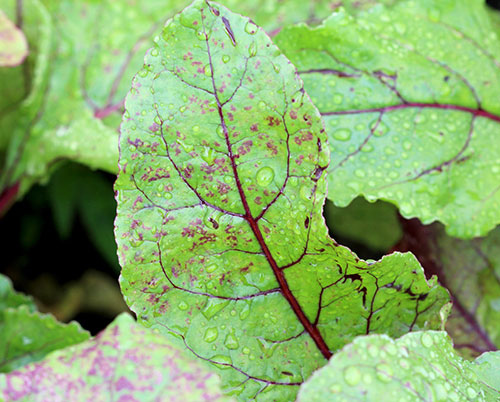Central Michigan vegetable regional report – July 9, 2014
Heavy rain produced large areas of flooding this week in central Michigan.

Weather
Heavy rain was experienced in the Central Region this week with many areas getting 5-6 inches of rain Sunday night and Monday morning (July 6-7). This has left fields that were already at adequate moisture levels for plant growth with excessive moisture creating flooding and areas of standing water.
Air temperatures have been a bit below normal for early July. At Entrican, temperatures have ranged from 68 degrees F to 81 degrees with night time lows in the upper 40s to low 60s.
Crops
Potato planting is complete and the crop has now fully emerged. Growth stages are variable. Cultivation and hilling is complete on early planted fields and is on hold in many others due to excessively wet soils. Colorado potato beetle adults, egg masses and larvae continue to be found on volunteer potatoes and potatoes not treated with insecticide. Adults can be found in a few fields that have been treated with insecticide at planting. Adult potato leafhoppers are present in low numbers.
The high humidity, rain and warm temperatures are favorable to late blight development and 9 Disease Severity Values were accumulated in the past week. To calculate total severity values for your emergence date, go to http://www.potatodiseases.org/lateblight.html and follow the disease prediction link. Growers are advised to begin applying protective fungicides to emerged potatoes. See also plant pathologist Willie Kirks’ article on the confirmation of late blight in northern Indiana potatoes.
Red beets are showing symptoms of bacterial leaf spot in many areas around the region as weather conditions have favored this disease. There are also symptoms of a few fungal leaf spots such as phoma leaf spot present, but I have not observed cercospora leaf spot which is the more serious disease.

Several leaf spots are common on table beets this year including bacterial leaf spot and phoma leaf spot.
Dry edible bean planting is complete with fewer acres than intended planted in West Michigan. Many dry bean and snap bean plantings will be at risk of developing root rot over the next few weeks as saturated soils and less than ideal growing conditions will favor disease development. Improving surface drainage to move standing water off the field as soon as possible may help in the short term.
Late plantings of pickling cucumber are now on hold in Gratiot and Montcalm counties due to the very wet soil conditions. Fungicide applications to protect against downy mildew should begin. While ground application is preferred, aerial application should be considered where soils are too wet to access with ground rigs.
Sweet corn planting is complete. Tassels have emerged in early planted fields without plastic. Tissue sampling of the ear leaf before pollination can be helpful in determining the nutrient status of corn plants. I have not caught a western bean cutworm moth in my traps, but emergence should begin very soon. European corn borer moth numbers are low and I have not caught any corn earworm adults in central Michigan. Corn rootworm beetles are emerging as well as Japanese beetles.



 Print
Print Email
Email




